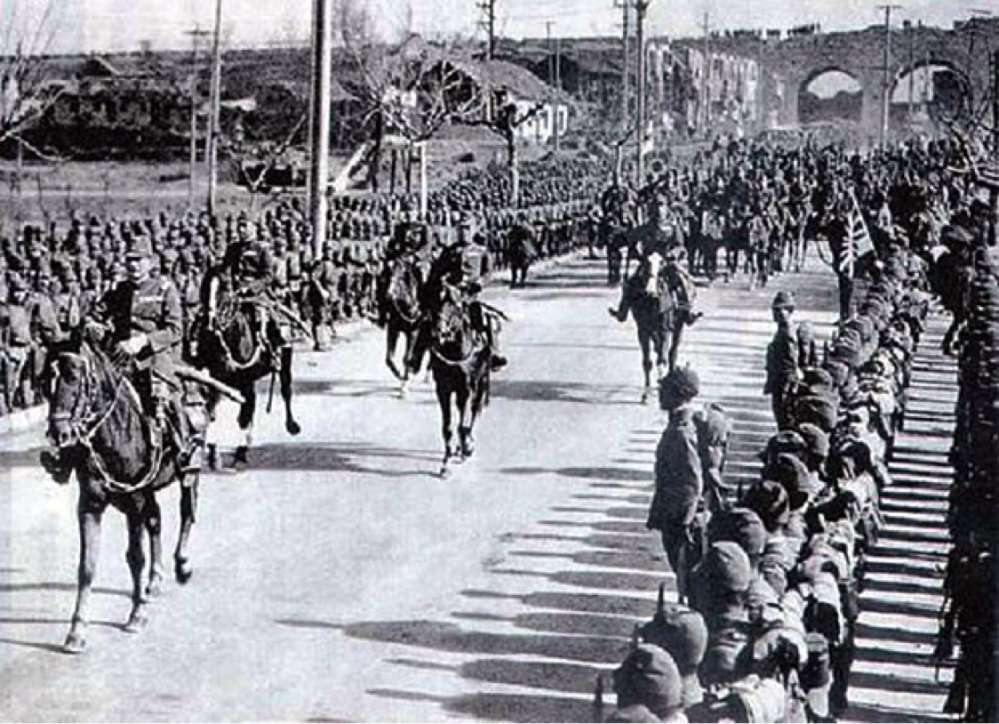The Nanjing Massacre: A Swedish Diplomat Reports (Part Two)
- By Peter Harmsen
- 21 July, 2019
- No Comments
“The soldiers have murdered, burnt and looted while raping women without worrying about the presence of witnesses.” By early 1938, the Swedish envoy to China, Johan Beck-Friis, was in no doubt that terrible things were happening in the city of Nanjing, occupied by the Japanese Army.
Beck-Friis, at the time 47 years old, was stationed in Shanghai, 200 miles to the east. In three detailed reports to the Foreign Ministry in Stockholm, he described the situation in Nanjing, based on what his sources were able to tell him.
The reports are now located in the National Archives in Stockholm and are made public here for the first time ever in an English version. This is the second in a series of three.
Letter from Johan Beck-Friis, Swedish envoy to China, to Swedish State Councilor Karl Gustaf Westman, January 31, 1938
Mr. State Councilor
Ever since Nanjing’s occupation on December 14 last year, the Japanese military has practically kept the city isolated from the outside world. Apart from a few foreign naval vessels and some representatives of certain embassies, all foreigners, including newspaper journalists, have as far as we know been prevented from either traveling to or leaving Nanjing. The information that we have about what has taken place is consequently sparse and incomplete.
However, it should be safe at this stage to conclude that the Japanese troops have made themselves guilty of excesses of an extent and of such a brutal character that they completely overshadow the worst behavior of Chinese bandit armies of the previous decades and that, was it not for the fact that we have the fully credible testimony of neutral observers, one would have refused to associate this with the previously well-disciplined Japanese Army. We are not just talking about acts committed during the first few days of victory fever. Rather, the misdeeds have continued for more than a month after the seizure of the city, and they seem to be continuing, albeit on a smaller scale. It is a generally held view here that General Matsui [Iwane] and the supreme army command sincerely regret what has happened, but have been incapable of reinstating discipline, while the junior officers have behaved no better than their men. According to witness testimony, the soldiers have murdered, burnt and looted while raping women without worrying about the presence of witnesses. Rape of even small girls has thus taken place even on the compounds of American missionary stations. I have had the opportunity to read a letter, dated December 27, by an American missionary who states that at that time roughly ten rapes were taking place inside his station’s area every day.
No reliable figures are available regarding the number of civilians killed or women raped. A pro-Japanese Italian correspondent told me that he estimated 15,000 to 20,000 people had been killed during the first three days of the occupation. Others give the total number of killed as 10,000 to 50,000. The number of women who have been raped is estimated to be 10,000 to 20,000. Virtually every Chinese building and most foreign buildings seem to have been looted, and of the former the majority seem to have been burned down afterwards. The misery is called indescribable.
Even the ambassadors did not escape. Thus, the cars belonging to the German and American ambassadors have been stolen by the Japanese, although they were handed back after a few days.
How many civilians have been killed in the area between Shanghai and Nanjing and north to the Yangtze River is impossible to state, since usually there are no foreign witnesses, and the entire area is isolated, but it was estimated to be about 300,000 by the Manchester Guardian’s local correspondent in a wire telegram, which the Japanese refused to carry and of which a transcript has been added. It’s likely that his estimate is on the low side. Many believe the number of innocent people who have been killed to exceed one million.
According to the testimony of witnesses, murder and rape have also taken place on an incredible scale in Hangzhou and Wuhu after those cities were occupied.
Apart from the humanitarian aspect, it seems that the Japanese have committed a serious political blunder with their excesses, since many Chinese, who otherwise might have been willing to collaborate with the Japanese, have turned reluctant to have anything to do with them, especially after the events in Nanjing. Previously, most Chinese, regardless of their personal opinions about the Japanese, associated them with order and organization, but this perception has now received a considerable blow. Those who might still have believed in the official Japanese reassurances about the Japanese Army’s friendly objectives towards the Chinese people have been alerted to a harsh reality.
In a few days I will in all likelihood send transcripts of a few reports by completely reliable foreign eyewitnesses of the events in Nanjing.
Sincerely,
Johan Beck-Friis




 Copyright © 2025
Copyright © 2025
Leave a Reply